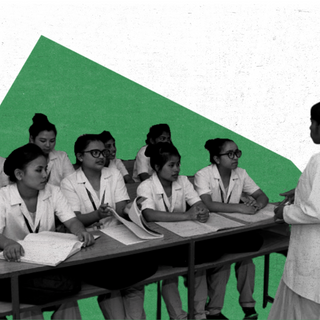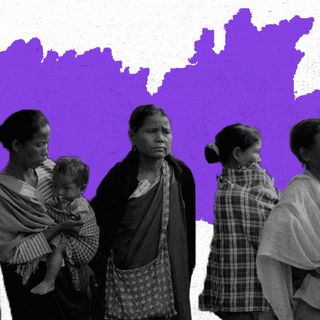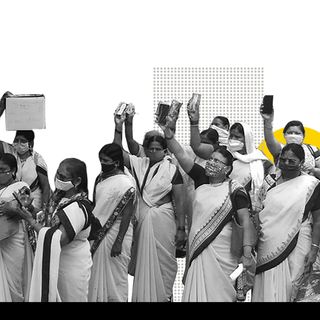The rate of female participation in unpaid labor sectors in India has risen, according to the government’s 2019-2020 employment statistics.
The Periodic Labour Force Survey (PLFS), which gathered data between July 2019 and June 2020 found the greatest increase was in the category of unpaid family workers, which refer to persons “who live with the proprietor of the unit and work regularly for the unit, but do not have a contract of service and do not receive a fixed sum for the work they perform.”
The work performed by the “increased” workforce was primarily either agricultural or domestic in nature, and mostly as part of household enterprises.
At the first glance, the employment rate for female workers increasing to 35% from the earlier 30% seems like a positive change, but with most of their work being unpaid, the surge quickly appears less promising. Especially so, since 94% of all working women in India are already employed in the informal sector — as domestic workers, farmhands, and construction workers, among others, according to an October 2020 report by Human Rights Watch (HRW).
“If you look at the details, you find that this increase is not in good quality work but the unpaid family work category or the unorganized sector. This is not something to be happy about,” P.C. Mohanan, former acting head of the National Statistical Commission, told The Indian Express.
Related on The Swaddle:
3,000 Domestic Workers Sent Postcards To Smriti Irani To Request Better Protection From Sexual Harassment
The lack of a legal and policy framework for these sectors already makes it difficult for workers to ensure even basic human dignity for themselves. Now, the increased participation of women in sectors that don’t even pay them their dues suggests a severe lack of other options.
“Lot of people lost jobs during the pandemic, and agriculture became the employment of last resort… Even though rising education levels have been seen among females, there aren’t enough good jobs for them,” Radhicka Kapoor, Fellow at Indian Council for Research on International Economic Relations (ICRIER), said. She clarified, however, that “the distress was brewing before the pandemic struck. GDP had slowed down, demand had declined and manufacturing was not expanding.”
But Covid19 has certainly worsened the treatment of women in the informal sector, with the 2020 lockdown adversely impacting 91.3% of domestic workers in India. The pandemic not only resulted in the loss of jobs and income for many but also the re-negotiation of wages and working conditions for others, which has left them worse off.
In addition, the pandemic has also led to a rise in caste- and class-based discriminatory practices against domestic workers — often under the garb of ensuring safety for their employers’ families. “They don’t give us water. They don’t let us use the bathroom. They don’t let us in the house, and they refuse to touch us. It feels as if all our progress to overcome untouchability has been undone. We feel a similar disregard today, as we felt under those practices,” two community leaders interviewed by researchers from the International Labor Organization (ILO), had said in July.




